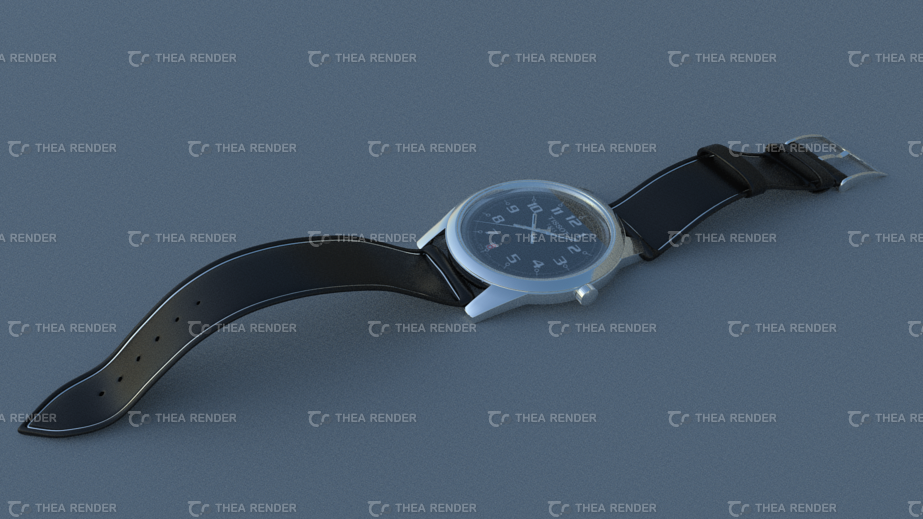Thea for SketchUp - Available Now!
-
You can try the demo and play with your models. This way you will quickly discover whether the plugin suits your needs.
With "Thea for SketchUp" you can use provided or create your own libraries of heavy objects like trees, cars and insert them into SketchUp as proxies. This way you will tremendously reduce the size of SketchUp model, while your rendering will be using high quality originals.
Thea Studio works in 64bit environment, so there is no limit of available memory, if you decide to bring your model into the Studio for further improvements.
-
sounds very good. just downloaded the trial- version.
Is it possible to run thea2su on two machines with the same license like in twilight?
-
@jo-ke said:
Is it possible to run thea2su on two machines with the same license?
A single copy of the program may be installed and used by you, on one machine. You can install the application on up to two more machines, provided that the plugin is not used or executed simultaneously on any machines. If you wish to install the Software or use the Software concurrently on additional machines you must purchase additional licenses.
-
Ah Ok, so this should work.
at the daytime I work in my office and I continue working at home at my laptop at night.
so one licence would work.
looks good:

-
I've been using Kerkythea for the past few years. Will this be a fairly easy transition? I love the results I'm seeing.
-
I'd say yes...
Although Thea Render is far more advanced, the work-flow is more easy to adapt...
Going from Maxwell, VRAY and other render applications is more tough IMO...Have to admit though, that it's been a loooong time, since I used KT...

-
The last days I was testing the software and tried to compare it to twilight.
some features I was missing (Or didn't find it)
-total time of rendering
-ability to preset the saving of the render every ten minutes
-couldn't find the export button to Thea Studioall in all it seems to be a good step to change from twilight to thea.
Is it possible to use displacement in thea?
-
You can save to *.pack.thea from the main rendering window - first "save" icon.
You can do it also from Thea Tool/Tools/Save Thea scene.
Total time of rendering and autosave are not available yet.@jo-ke said:
Is it possible to use displacement in thea?
Yes, you can use displacement in Thea.
-
@tomasz said:
Total time of rendering and autosave are not available yet.
Oh thats really bad. Sometimes renders in Twilight take about one or two days and sometimes the PC crashes and everything would be lost, if I didn't have chosen the autosave option.
Is Thea faster then Twilight?
-
@jo-ke said:
@tomasz said:
Total time of rendering and autosave are not available yet.
Oh thats really bad. Sometimes renders in Twilight take about one or two days and sometimes the PC crashes and everything would be lost, if I didn't have chosen the autosave option.
Is Thea faster then Twilight?
Keep in mind that Thea4SU is still in beta. Some features are not there yet.
If you have that long renders, perhaps opening a saved scene in Thea studio is the best option, as it does create temp files (A full render buffer that can be loaded and you can continue rendering. It also saves temp image).
If you want to compare TWL to Thea, you can export a scene from TWL as Kerkythea XML and import in to Thea Studio. Some material adjustments may be required as materials are converted by some heuristics.
Anyhow in my experience Thea's render engines are generally faster than similar Kerkythea's engines if similar materials are used. More complexes the scene, more Thea has advantage. But as Thea has more advanced material options and ways to solve difficult light paths, it possible that from same the SU scene, one can create a Thea scene that do render slower - but quality will be different.
-
@notareal said:
@atlastudio said:
Would like to know how to reduce noise if there's any experts reading!
Not sure how materials and scene is set, but I do get a impression that most light comes from the Sun trough a glossy based glass (a real glass that creates caustics) curtain wall.
Some "tricks":- Thin Film based glass (architectural glass) will speed up convergence a lot.
- TR2 will render most challenging light paths and materials (naturally with cost of render time)
- Super-Sapling set to "High" with TR1/TR2 helps to reduce noise
- Use some fill light (a emitter that is not visible to the camera) to boost convergence, if most of the light comes trough glossy based glass.
Note: light components and mesh emitters intersecting nearby mesh may cause noise as well as emitters that has really dense polygon mesh. Make sure that pure white and black are not used, keep diffuse colors in 6-96% range.
Thanks for the tips, have just coughed up and bought it today so looking forward to seeing what i can achieve.
Advertisement







